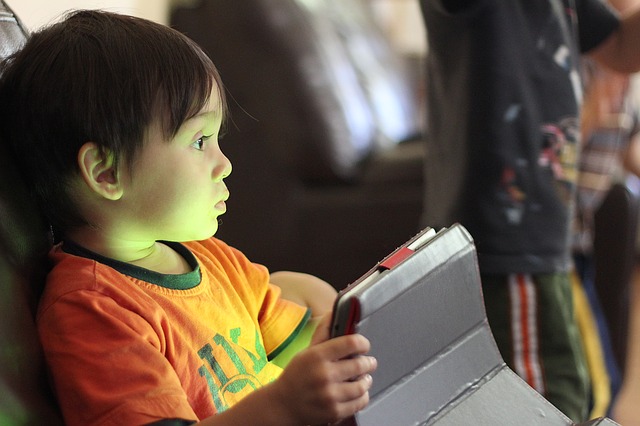In this day and age where gadgets rule, more and more toddlers are playing with touch-screen devices, which in turn deprive them of sleep, a new study states.
Researchers from Birkbeck, University of London in England found that children ages 6 months to 3 years who spent more time using tablets and smartphones during the day got less sleep and took longer to fall asleep, compared to kids who did not use these devices frequently.
In addition, these same toddlers who fiddled with touch screen devices slept more during the day, and less at night, Yahoo News reports.
Tim Smith, professor of cognitive psychology and lead author on the study, said this is the first study to examine the link between touch-screen use in toddlers and sleep.
The researchers conducted a survey on more than 700 families in the United Kingdom. The questionnaire asked parents how often their children played with a smartphone or tablet on a normal day, and got information on how long the kids slept, how often they woke up in the night, and how long it took them to fall asleep.
There have been previous studies on how smartphone and tablet use among children and teenagers affected their sleep. But there has been little information on how the same devices impacted toddlers.
According to the data, kids ages 6-11 months old used touch screens for an average of eight minutes a day. Children ages 12-18 months used them for 19 minutes daily, and toddlers ages 19 to 25 months used them for 25 minutes per day, on average. Those older than 25 months played with touch screen devices about 44 minutes a day.
Each additional hour a child spent on a smartphone or tablet was associated with 15.6 minutes less sleep, the study said. The study did not look at specific reasons why this was the case. But one explanation for why this interfered with sleep was because such devices stimulate children, making it difficult for them to fall asleep normally.
Smith said that the best guidelines for parents to follow are those from the American Academy of Pediatrics, which recommends limiting touch screen use, and carefully supervising activities conducted on tablets or smartphones.
The study was published in the journal Scientific Reports.
























